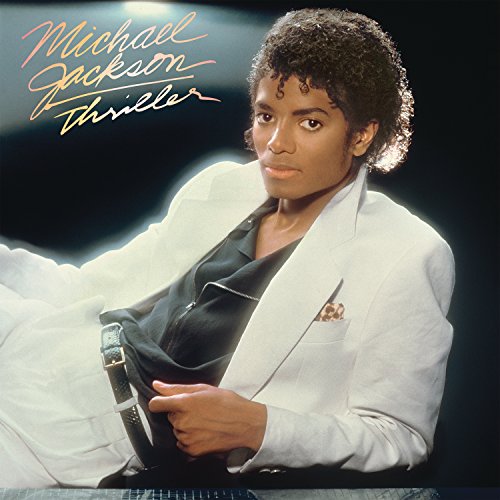20 subscribers
Go offline with the Player FM app!
Podcasts Worth a Listen
SPONSORED

1 Grown-Up Goals: The 5 Pillars Of Being A Healthy Adult with Michelle Chalfant | 317 35:24
Ep. 210: Ane Ohm – Simplifying FASB’s New Lease Accounting Standards
Manage episode 348893929 series 2538467
Connect with Ane: https://www.linkedin.com/in/aneohm/
LeaseCrunch Website: www.leasecrunch.com
What is ASC 824? The ultimate guide: https://www.leasecrunch.com/blog/asc-842
5 FAQs about embedded leases: https://www.leasecrunch.com/blog/embedded-leases
Request a demo: www.leasecrunch.com/request-a-demo
Full Episode Transcript:
[00:00:00] < Intro >
Adam: Welcome back to Count Me In. The podcast for accounting and finance professionals working in business. I'm Adam Larson. Today we'll be discussing a perennial hot topic lease accounting, specifically, FASB's new standards for private companies and nonprofits under ASC 842. And just in case you're unaware, the deadline to transition to the new standards is December 31st, 2022.
Thankfully, I'm joined, today, by a true expert in this, infamously, thorny topic. Ane Ohm, is a CPA as well as co-founder and CEO of LeaseCrunch, a software company that helps companies simplify their lease accounting. If you're looking for practical tips and best practices to make lease accounting a little less stressful, this is the conversation for you. Let's get started.
[00:00:51] < Music >
Well, Ane, I want to thank you so much for coming on the podcast, today. We are going to be talking about lease accounting. And as all of us know that the standard, the new Lease Accounting Standard deadline is approaching very quickly, and people should get started. We've been talking about this since what? 2018. And if you haven't gotten started the time now is to get started. What do you think? What is your advice to people as we start talking about this?
Ane: I think the big thing with any accounting standard is that, and when I was running a different company. A new accounting standard would come up and I would ask my accountant, "What is the last moment I have to do anything about this?" And that's when I would do it. And the challenge with the lease accounting standard, if you wait there's a couple of things, first of all, leases can be complicated.
And, so, that analysis of your lease, spending the time understanding it in the context of the new lease standard can take some time. And, secondly, if you need help and you wait the experts are going to be busy. So you're going to have a really difficult time getting a hold of someone who can really guide you through the right steps.
So we're actually hearing CPA firms state that if their clients wait, they're going to have to charge them more in order to be able to offer that assistance. Because they're going to be so busy with other things. If you wait until January, February, this is going to be rough. So start now, get on top of it, it's just going to make things, life, better for you.
Adam: Yes, for sure, because you don't want to wait till the last possible second because it's going to fall back in your face. Do you think that maybe we could start, in this podcast, to maybe go over some practical expectations and how to make your adoption easier? Especially if you are just getting started now, or even if you've been aware, you've been preparing. But to the actual practical application, it's still going to be a difficult process.
Ane: Yes, so there's something to it when you think about the new Lease Standard, you have basically two types of leases. Leases that existed before the standards needed to be implemented, and then leases that start after the standard need to be implemented. So talking about those leases that started before your initial application date of the new standard. The FASB, Financial Accounting Standard Board really wanted to make sure that this was as easy as possible. It sounds like that might not be true, but it is, they have said that repeatedly.
And, so, what they've done is they've actually provided some practical expedience and those practical expedience, the whole purpose of them is to simplify the new standard. So for those transition leases, those leases that existed before, if you have a nice software available to you, there's really only six pieces of information that you need to do.
If you apply those practical expedience, make sure you're doing the things that make this as easy as possible. And then collect those six basic pieces of information. And those are; start date, well, guess what, that start date is going to be the initial application date of the standard.
So if you know that already, huh! If your end is December 31st, that's going to be January 1st, of 2022. All right, so we got one. Second one is, "When does the lease end?" It can be a little more complicated because you have to not just say, "When do I stop paying? When is the initial end of the lease?" I have to, also, look at it and see, "What might I be reasonably certain to renew a term or might I be reasonably certain to terminate early?"
So you really have to look at what is the total lease term, including renewals, if you're reasonably certain. It's a high bar but you do have to look at it.
The third thing is discount rate. So, and I don't think we know this but those first two seem, they are pretty easy. And the discount rate is the FASB offers the ability to just use the risk-free rate. So that's great because that's publicly available.
You don't have to really think about it too hard. Or the challenge with the risk-free rate is that it will tend to be lower, which means your lease liability will be higher. If you don't want that for larger leases, the FASB, also, more recently, allows us to decide your discount rate based on asset class.
So you can say, "All right, for my office lease, which is a big lease, it's going to be big dollars, I'll spend the time to figure out the higher discount rate. And if I have vehicles or photocopiers, I'm just going to use the risk-free rate."
So that's a nice thing, so that's the third piece of information. Fourth one, is, hey, is this an operating lease or a finance lease? Well, once again, FASB says, "You know what, if you had an operating lease before it's an operating lease now. If you had a capital lease...
344 episodes
Manage episode 348893929 series 2538467
Connect with Ane: https://www.linkedin.com/in/aneohm/
LeaseCrunch Website: www.leasecrunch.com
What is ASC 824? The ultimate guide: https://www.leasecrunch.com/blog/asc-842
5 FAQs about embedded leases: https://www.leasecrunch.com/blog/embedded-leases
Request a demo: www.leasecrunch.com/request-a-demo
Full Episode Transcript:
[00:00:00] < Intro >
Adam: Welcome back to Count Me In. The podcast for accounting and finance professionals working in business. I'm Adam Larson. Today we'll be discussing a perennial hot topic lease accounting, specifically, FASB's new standards for private companies and nonprofits under ASC 842. And just in case you're unaware, the deadline to transition to the new standards is December 31st, 2022.
Thankfully, I'm joined, today, by a true expert in this, infamously, thorny topic. Ane Ohm, is a CPA as well as co-founder and CEO of LeaseCrunch, a software company that helps companies simplify their lease accounting. If you're looking for practical tips and best practices to make lease accounting a little less stressful, this is the conversation for you. Let's get started.
[00:00:51] < Music >
Well, Ane, I want to thank you so much for coming on the podcast, today. We are going to be talking about lease accounting. And as all of us know that the standard, the new Lease Accounting Standard deadline is approaching very quickly, and people should get started. We've been talking about this since what? 2018. And if you haven't gotten started the time now is to get started. What do you think? What is your advice to people as we start talking about this?
Ane: I think the big thing with any accounting standard is that, and when I was running a different company. A new accounting standard would come up and I would ask my accountant, "What is the last moment I have to do anything about this?" And that's when I would do it. And the challenge with the lease accounting standard, if you wait there's a couple of things, first of all, leases can be complicated.
And, so, that analysis of your lease, spending the time understanding it in the context of the new lease standard can take some time. And, secondly, if you need help and you wait the experts are going to be busy. So you're going to have a really difficult time getting a hold of someone who can really guide you through the right steps.
So we're actually hearing CPA firms state that if their clients wait, they're going to have to charge them more in order to be able to offer that assistance. Because they're going to be so busy with other things. If you wait until January, February, this is going to be rough. So start now, get on top of it, it's just going to make things, life, better for you.
Adam: Yes, for sure, because you don't want to wait till the last possible second because it's going to fall back in your face. Do you think that maybe we could start, in this podcast, to maybe go over some practical expectations and how to make your adoption easier? Especially if you are just getting started now, or even if you've been aware, you've been preparing. But to the actual practical application, it's still going to be a difficult process.
Ane: Yes, so there's something to it when you think about the new Lease Standard, you have basically two types of leases. Leases that existed before the standards needed to be implemented, and then leases that start after the standard need to be implemented. So talking about those leases that started before your initial application date of the new standard. The FASB, Financial Accounting Standard Board really wanted to make sure that this was as easy as possible. It sounds like that might not be true, but it is, they have said that repeatedly.
And, so, what they've done is they've actually provided some practical expedience and those practical expedience, the whole purpose of them is to simplify the new standard. So for those transition leases, those leases that existed before, if you have a nice software available to you, there's really only six pieces of information that you need to do.
If you apply those practical expedience, make sure you're doing the things that make this as easy as possible. And then collect those six basic pieces of information. And those are; start date, well, guess what, that start date is going to be the initial application date of the standard.
So if you know that already, huh! If your end is December 31st, that's going to be January 1st, of 2022. All right, so we got one. Second one is, "When does the lease end?" It can be a little more complicated because you have to not just say, "When do I stop paying? When is the initial end of the lease?" I have to, also, look at it and see, "What might I be reasonably certain to renew a term or might I be reasonably certain to terminate early?"
So you really have to look at what is the total lease term, including renewals, if you're reasonably certain. It's a high bar but you do have to look at it.
The third thing is discount rate. So, and I don't think we know this but those first two seem, they are pretty easy. And the discount rate is the FASB offers the ability to just use the risk-free rate. So that's great because that's publicly available.
You don't have to really think about it too hard. Or the challenge with the risk-free rate is that it will tend to be lower, which means your lease liability will be higher. If you don't want that for larger leases, the FASB, also, more recently, allows us to decide your discount rate based on asset class.
So you can say, "All right, for my office lease, which is a big lease, it's going to be big dollars, I'll spend the time to figure out the higher discount rate. And if I have vehicles or photocopiers, I'm just going to use the risk-free rate."
So that's a nice thing, so that's the third piece of information. Fourth one, is, hey, is this an operating lease or a finance lease? Well, once again, FASB says, "You know what, if you had an operating lease before it's an operating lease now. If you had a capital lease...
344 episodes
All episodes
×1 Ep. 306: Vrinda Sasidhar - Building Strong HR and Finance Partnerships 26:35
1 Ep. 305: Ben Cena - Moving Big Ideas Toward Real-World Impact 30:22
1 Ep 304: Kingsley Afemikhe - Embedding Finance in the Heart of Innovation 29:03
1 Ep. 303: Deirdre Ryan - Revolutionizing Finance: A Look at Digital Transformation 30:17
1 Ep. 302: Kris Russell - Building Trust and Accountability Through Authentic Leadership 36:17
1 Ep. 301: Alissa Vickery - Unraveling the Complexities of ESG Reporting 25:33
1 Ep. 300: John Hewitt - Achieving the Extraordinary: Lessons in Entrepreneurial Success and Growth 26:47
1 Ep. 299: Razzak Jallow - The Impact of Technology on Finance Leadership and Transformation 29:12
1 Ep. 298: Alan Lazaros - Overcoming Self Doubt and Embracing Your Unique Strengths 32:41
1 Ep. 297: Mike Straza - Building Strong Accounting Teams through Effective Leadership 31:50
1 Ep. 296: Samantha Jewel - Pioneering Soil Carbon Credits And Environmental Stewardship 32:04
1 Ep. 295: Stacey Chazin - Busting Myths About Introverts and Leadership 31:56
1 Ep. 294: Michael Dion - Mastering Financial Transformation: The Strategic Power of Automation 26:37
1 Ep. 293: Siqi Chen: Breakthrough In Financial Intelligence 34:34
1 Ep. 292: Court Watson - From Balance Sheets To AI: Shaping the Future of Accounting 32:30
Welcome to Player FM!
Player FM is scanning the web for high-quality podcasts for you to enjoy right now. It's the best podcast app and works on Android, iPhone, and the web. Signup to sync subscriptions across devices.

























